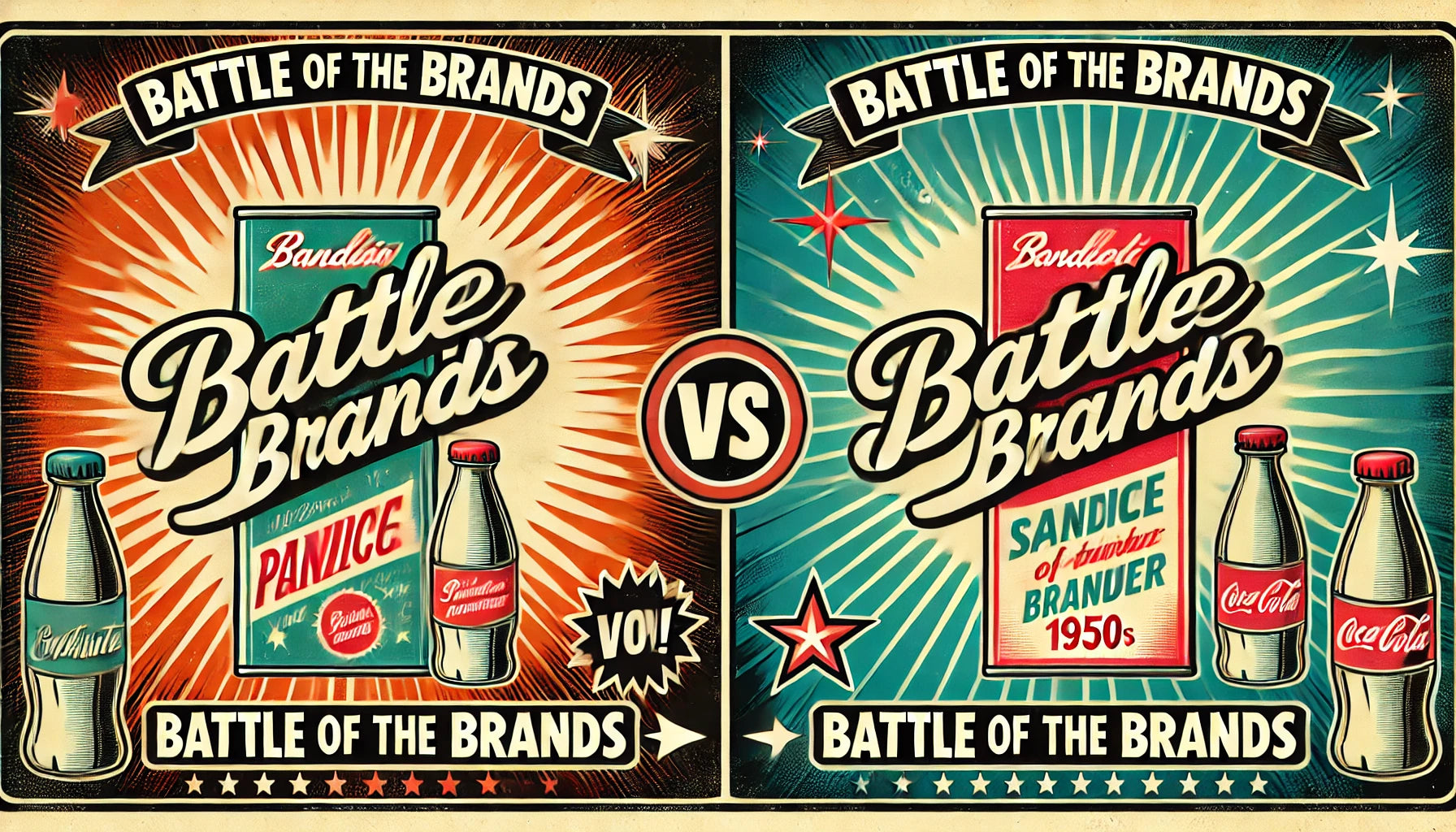Quick Overview
Comparative advertising is a marketing tactic where brands compare their products to competitors, often highlighting superiority. While legal in many jurisdictions, these comparisons must adhere to strict guidelines. Missteps can result in lawsuits for false advertising, trademark infringement, or defamation. This article explores what’s legally allowed and how brands can navigate this competitive terrain without crossing the line.

Common Questions & Answers
1. Can a competitor mention my brand in their ad?
Yes, in most cases, as long as the comparison is truthful, non-deceptive, and doesn’t misuse trademarks. For example, stating, "Our phone lasts 3 hours longer than [competitor’s phone]" is often acceptable with evidence to support the claim.
2. What happens if their claims are false?
False claims can lead to lawsuits under laws like the Lanham Act (in the U.S.) for false advertising or unfair competition. Consumers and competitors alike may have grounds for legal action.
3. Are exaggerated or humorous comparisons protected?
Parody or puffery (like “the best coffee in the world”) is often protected because it’s understood as opinion, not fact. However, specifics like “40% cheaper than Brand X” must be substantiated.
4. Is using my trademarked logo or slogan in comparisons allowed?
Limited use of trademarks is permitted if necessary to identify your product, but it cannot create confusion about endorsement or association. Misuse of logos may lead to trademark infringement claims.
5. Can I sue if their comparison harms my reputation?
Only if the harm stems from false or misleading claims. Truthful comparisons, even if unflattering, are generally protected under advertising laws.

Step-by-Step Guide to Navigating Product Comparisons
-
Ensure Claims Are True and Verifiable
Support any comparative statement with objective, reliable evidence. Claims should reflect current and accurate data. -
Avoid Overstepping Trademark Boundaries
Use competitors’ trademarks only to identify their products, and do not imply endorsement or partnership. -
Steer Clear of Defamation
Refrain from making subjective, negative comments about competitors. Focus on measurable attributes like price or performance. -
Understand Regional Regulations
Advertising laws vary worldwide. What’s permissible in the U.S. may not align with European Union rules or other markets. -
Consult Legal Experts
Before launching comparative campaigns, review content with legal counsel to mitigate potential risks.
Ready to build a marketing strategy that stays on the right side of the law? Schedule a consultation with Devin Miller for expert insights.
Historical Context
Comparative advertising gained traction in the 1970s when regulatory bodies like the Federal Trade Commission (FTC) in the U.S. encouraged truthful competition. Before this, companies hesitated to name rivals for fear of defamation lawsuits.
One landmark case in the 1980s involved Pepsi and Coca-Cola’s “Pepsi Challenge,” where Pepsi showcased blind taste tests to claim preference over Coke. Though bold, it adhered to legal standards by relying on verifiable data.
Today, digital platforms have amplified comparisons, but laws like the Lanham Act and EU Directive 2006/114/EC regulate false or misleading advertising globally.

Business Competition Examples
-
Apple vs. Samsung
Apple and Samsung have frequently engaged in comparative advertising, often poking fun at each other’s features. Their campaigns carefully highlight specific product attributes to avoid defamation or misleading claims. -
Domino’s vs. Subway (UK)
Domino’s once compared their sandwiches to Subway’s, emphasizing lower calorie counts. Subway challenged the ad, but regulators deemed it fair, as Domino’s substantiated their claims. -
Pepsi vs. Coca-Cola
Pepsi’s long-standing rivalry with Coca-Cola includes the famous taste test ads, emphasizing verifiable consumer preference without denigrating Coke’s brand.

Discussion
Comparative advertising, when done ethically, benefits consumers by encouraging transparency and competition. However, brands walk a fine line between legitimate comparisons and harmful accusations. Misleading ads not only risk legal trouble but also erode consumer trust. Ethical advertising balances honesty, creativity, and respect for competitors, fostering a healthier market landscape.
Yet, gray areas persist. For instance, who determines whether an ad’s tone is defamatory or playful? Courts often weigh factors like evidence, intent, and public perception when disputes arise. This underscores the importance of both diligence and creativity in crafting such campaigns.

The Debate
Pro Comparative Advertising:
It fosters healthy competition, educates consumers, and drives innovation. When backed by evidence, it creates an informed market where buyers make better decisions.
Con Comparative Advertising:
It risks misinterpretation, legal disputes, and reputational damage if not executed carefully. Excessive focus on competitors can shift attention away from a brand’s strengths.

Takeaways
- Ensure every claim is truthful and substantiated with reliable evidence.
- Use competitor trademarks cautiously, avoiding implications of endorsement.
- Seek legal review of all comparative marketing materials before launch.
- Focus on product strengths, not unfounded criticisms of rivals.
- Stay updated on advertising laws in your target markets.

Potential Business Hazards
- Lawsuits for False Advertising: Misleading claims can result in costly legal battles.
- Reputational Damage: Over-aggressive comparisons may alienate consumers.
- Regulatory Fines: Violations of advertising laws attract significant penalties.
- Loss of Trust: Unverified claims damage credibility and brand loyalty.

Myths and Misconceptions
- “Mentioning a competitor is always illegal.” Not true. Comparative advertising is often allowed if truthful.
- “Parody ads are immune to lawsuits.” Parody provides some protection but must avoid misleading claims.
- “Using a competitor’s logo guarantees a lawsuit.” Not necessarily; limited use for identification is permitted.
- “False claims are easily overlooked.” Regulators and consumers frequently hold brands accountable for inaccuracies.

Book & Podcast Recommendations
-
"Made to Stick" by Chip and Dan Heath
This book explores what makes ideas and messages memorable, offering tips relevant to impactful advertising. -
"Building a StoryBrand" by Donald Miller
Learn how to create compelling brand narratives that focus on your strengths rather than criticizing competitors. -
"Marketing Over Coffee" (Podcast)
A lighthearted but informative podcast discussing trends, ethics, and innovations in marketing, including comparative advertising.

Legal Cases
-
PepsiCo, Inc. v. Coca-Cola Co.
Coca-Cola challenged Pepsi’s comparative ads but lost, as Pepsi proved their claims were substantiated and not misleading. -
Lidl v. Tesco (2023, UK)
Lidl sued Tesco for misleading comparisons in their “price match” ads. The court ruled against Tesco for not providing clear price details. -
Energizer v. Duracell
Duracell claimed longer battery life, which Energizer challenged. Courts ruled in Duracell’s favor as they had evidence to support their ads.

Share Your Expertise
Curious about how to craft competitive yet compliant marketing strategies? Explore resources for startups and businesses at Miller IP Law’s Inventive Unicorn.
![]()
Wrap Up
Navigating comparative advertising requires a balance of creativity, honesty, and legal caution. When done right, it highlights your strengths without overshadowing your reputation. Stay informed, consult experts, and build campaigns that uplift rather than undermine.













